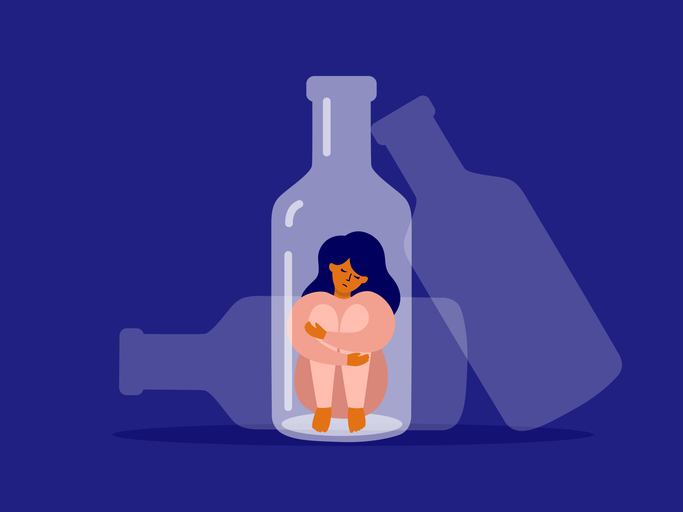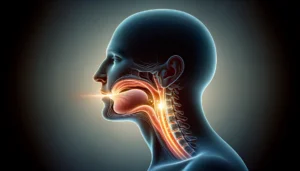Embarking on the journey to overcome alcohol addiction is a courageous step, one that reflects both strength and a commitment to personal growth. In today’s fast-paced world, where balancing life’s responsibilities is a constant challenge, finding a treatment option that aligns with your everyday life is crucial.
Outpatient alcohol rehab emerges as a beacon of hope in this regard, offering a flexible yet effective pathway to recovery. This form of treatment respects your daily commitments, whether they be work, education, or family, allowing you to receive essential support without stepping away from your life’s roles and responsibilities. In this article, we delve into the world of outpatient alcohol rehab, exploring its structure, therapies, and payment options, all aimed at providing a clear and hopeful perspective for those considering this vital step towards a healthier, happier life.
Understanding Outpatient Alcohol Rehab
Outpatient alcohol rehab is a treatment option designed for those seeking help with alcohol addiction while still maintaining their daily life responsibilities. Unlike inpatient programs that require a residential stay, outpatient rehab allows individuals to live at home and continue with their regular activities, such as work, school, or family commitments. This approach provides a blend of support and independence, catering to those who require flexibility in their treatment schedule.
Types of Outpatient Programs
- Intensive Outpatient Programs (IOP): These programs are structured and require frequent visits to the treatment center, often several times a week. IOPs are designed for those who need a more rigorous treatment schedule but can manage it alongside their daily responsibilities.
- Partial Hospitalization Programs (PHP): PHPs are a step up in intensity from IOPs. They may require more time at the facility for treatment but still do not involve overnight stays. This program is suitable for individuals who need a higher level of care but are still able to spend nights at home.
- Standard Outpatient Programs: These are the least intensive option and involve fewer visits per week. They are ideal for individuals with less severe drinking problems or as a step down from more intensive programs.
Each of these programs is designed to be flexible and integrate into the daily lives of participants. The choice of program typically depends on the individual’s specific needs, the severity of their addiction, and their personal and professional commitments.
The Components of Outpatient Rehab
Outpatient alcohol rehab programs, despite their flexibility in scheduling, maintain a comprehensive approach to treatment. The core components of these programs are designed to address various aspects of addiction, fostering both personal growth and recovery.
Individual Counseling
- Personalized Focus: One-on-one sessions with a counselor or therapist are a cornerstone of outpatient rehab. These sessions are tailored to address individual struggles, patterns of alcohol use, and underlying issues like mental health conditions or stressors.
- Goal Setting: Counselors help set realistic and personal goals for recovery, providing a roadmap for the journey ahead.
Group Therapy
- Shared Experiences: Group therapy sessions bring individuals together to share experiences and challenges. This communal aspect of therapy fosters a sense of understanding and support among peers.
- Diverse Perspectives: Participants gain insights from the experiences of others, which can be instrumental in their own recovery process.
Educational Workshops
- Knowledge Building: Workshops in outpatient programs often focus on educating participants about alcohol addiction, its effects, and strategies for managing it.
- Skill Development: These sessions also aim to equip individuals with practical skills for coping with triggers and maintaining sobriety.
Relapse Prevention Strategies
- Sustainable Sobriety: A critical component of these programs is learning and developing strategies to prevent relapse. This includes identifying triggers, understanding the stages of relapse, and creating a plan to manage challenging situations.
- Continuous Support: Many programs also offer ongoing support or follow-up sessions post-treatment to ensure long-term success in recovery.
The combination of these core components in outpatient rehab offers a balanced approach, addressing the emotional, educational, and practical aspects of overcoming alcohol addiction. This comprehensive care is key to not only achieving sobriety but also maintaining it in the long term.
The Process of Outpatient Alcohol Rehab
The journey through outpatient rehab begins with an initial contact and assessment, where individuals reach out to a rehab center and undergo a thorough evaluation of their needs and situation. This step is crucial for tailoring a treatment plan that aligns with the individual’s specific circumstances.
The treatment plan typically includes a mix of therapy sessions, both individual and group, along with educational workshops. These are scheduled flexibly, allowing participants to attend during convenient times.
A key aspect of outpatient rehab is its integration with daily life, enabling individuals to balance treatment with personal responsibilities like work or family. Building a support network is also a focal point, both within the program and in one’s daily life, fostering long-term recovery.
Payment Options for Outpatient Rehab
Securing funding for outpatient alcohol rehab can be a concern for many, but understanding the variety of payment options available can alleviate some of this stress. These options are designed to ensure that treatment is accessible to as many people as possible, regardless of their financial situation.
Health Insurance: Many outpatient rehab programs are covered by health insurance. Coverage details can vary, so it’s important to check with your insurance provider to understand what treatments and services are included.
Sliding Scale Fees: For those without insurance or with limited coverage, some rehab centers offer sliding scale fees. These are adjusted based on the individual’s income, making treatment more affordable for those with lower income.
Payment Plans: Rehab centers may offer payment plans, allowing the cost of treatment to be divided into manageable installments over a set period.
Financial Aid or Grants: Some programs might have access to financial aid or grants, which can provide further financial assistance to those who qualify.
Personal Funding: Individuals can also choose to pay out-of-pocket. This might involve savings, loans, or financial support from family or friends.
State and Community Programs: There are also state and community-funded programs that offer rehab services at low or no cost, depending on eligibility.
Understanding and exploring these payment options can significantly ease the financial burden of treatment, making the path to recovery more accessible.
Therapies Used in Outpatient Rehab
Outpatient alcohol rehab programs employ a diverse range of therapeutic approaches, each tailored to address specific aspects of addiction and recovery.
Cognitive Behavioral Therapy (CBT)
CBT focuses on changing negative thought patterns and behaviors related to alcohol use, teaching individuals to recognize and alter these patterns for better coping.
Dialectical Behavior Therapy (DBT)
DBT aids in emotional regulation and is particularly effective for individuals with intense emotional responses or co-occurring mental health conditions.
Motivational Interviewing
This therapy enhances an individual’s motivation to change, using collaborative discussions to foster positive behavioral adjustments.
Family Therapy
Family therapy addresses the impact of alcohol abuse on family dynamics, improving communication and support within the family unit.
Holistic Therapies
Holistic therapies like mindfulness, yoga, and art therapy focus on overall well-being, supporting mental and physical health in the recovery process.
Relapse Prevention Therapy
Relapse Prevention Therapy provides strategies to identify and manage triggers, crucial for maintaining long-term sobriety.
Each therapy contributes uniquely to the comprehensive treatment plan of outpatient alcohol rehab, supporting various aspects of the individual’s journey toward recovery.
Benefits of Outpatient Rehab
Outpatient alcohol rehab offers a range of advantages, making it an appealing choice for those seeking flexibility and support in their recovery journey. The benefits of this approach are diverse and cater to the various needs of individuals, balancing their treatment with everyday life.
- Flexibility: Tailors to personal and professional schedules.
- Affordability: Generally more cost-effective than inpatient options.
- Family Support: Enables staying with family during treatment.
- Real-World Application: Allows immediate application of coping strategies in daily life.
- Community Connection: Facilitates building support networks within the community.
- Less Disruption: Minimizes interruption to work, school, or personal life.
- Privacy: Maintains a higher degree of personal privacy.
- Continued Independence: Encourages self-reliance and management of responsibilities.
- Diverse Therapies: Offers a variety of therapeutic approaches.
- Long-Term Recovery Focus: Emphasizes strategies for sustaining sobriety post-treatment.
Each benefit contributes to making outpatient alcohol rehab a comprehensive and adaptable option for those seeking a path to recovery while maintaining their everyday responsibilities.
Conclusion
In summary, outpatient alcohol rehab stands out as a flexible and effective solution for those tackling alcohol addiction while managing their daily lives. It offers a balanced approach, combining treatment with personal responsibilities, and is accessible through various payment options and therapeutic methods. Choosing the right outpatient program can significantly impact the success of one’s recovery journey.
If you’re considering taking this brave step towards a healthier life, remember that help is available and tailored to your unique needs. For guidance and support in finding the right path for you, contact us at Ocean State Recovery Center. We’re here to help you every step of the way.





